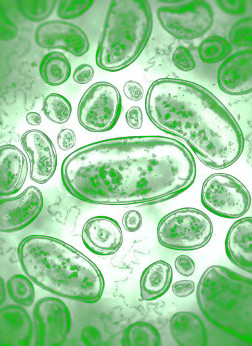AMR flows outlined
 Analysts have raised concern about antimicrobial resistance (AMR) in water sources.
Analysts have raised concern about antimicrobial resistance (AMR) in water sources.
A new report underscores the significant implications of AMR for human and animal health, the environment, and the industry.
A new White Paper prepared by Shawview Consulting was formulated during a government and industry roundtable held earlier this year in Canberra, bringing together more than 20 organisations, including the Department of Agriculture, Fisheries and Forestry, CSIRO, and Pfizer, among others.
Titled ‘Measuring, Managing, Mitigating: Gaining a One Health Perspective on Removing Antimicrobial Residues from Water’, the document emphasises the need to prevent a scenario where common infections become life-threatening, and certain medical procedures become too risky due to AMR.
Australia faces a mounting threat from AMR. The primary driver of the problem is the overexposure to antimicrobials, often resulting from their misuse or overuse. AMR diminishes the effectiveness of medicines and complicates the treatment of infections.
An aspect of AMR that often goes unnoticed is its emergence and proliferation in the environment, particularly in water sources.
Antimicrobial contaminants from various sources, including healthcare facilities, domestic sewerage, agriculture, and livestock runoff, can infiltrate natural waterways.
Currently, there is no national monitoring of antimicrobials in groundwater, urban stormwater, or drinking water.
The White Paper calls for the establishment of national standards defining the maximum permissible levels of antimicrobials, and the development of monitoring systems to track antimicrobials in water systems.
The experts also suggest the appointment of an AMR Emissary for Australia to raise awareness and promote action on AMR issues locally and internationally.
Brendan Shaw, Principal at Shawview Consulting, stressed the importance of collaboration among different industry sectors and policymakers, saying AMR is set to have a widespread impact on industries and communities globally.
Professor Branwen Morgan, Lead of CSIRO's Minimising Antimicrobial Resistance Mission, a sponsor of the roundtable, also highlighted the severity of AMR, which has been designated by the World Health Organization as one of the top 10 public health threats facing humanity.
Morgan says water plays a major role in the spread of AMR and the need to understand and mitigate potential risks, especially in sectors that use antimicrobials or handle waste containing them.
The recommendations were the result of discussions held during a government and industry roundtable in Canberra earlier this year, where participants deliberated on AMR in the environment, especially in water systems, and its implications for health, the environment, and the industry.
The workshop, co-presented by several organisations, including the Australian Government Department of Agriculture, Fisheries and Forestry, CSIRO, CRC-SAAFE, the Australian Antimicrobial Resistance Network, and Shawview Consulting.







 Print
Print